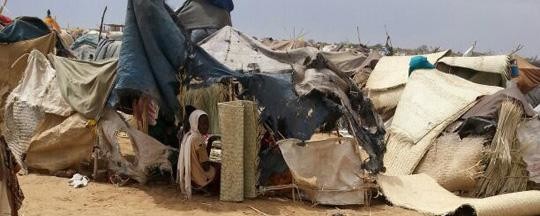The number of hepatitis E cases in South Darfur and Blue Nile states has risen to more than 700 confirmed cases.
Almost half of the reported cases were identified in South Darfur’s Kalma camp for the displaced. In Blue Nile state, more than 80 cases have been reported, the UN Office for the Coordination of Humanitarian Affairs (OCHA) in Sudan reports in its latest weekly bulletin released today.
According to the World Health Organization (WHO), as of 17 September a total of 84 hepatitis E cases, with three deaths, have been reported in the area of Madina 10, Geissan locality, Blue Nile state. The actual number of people infected with the hepatitis virus may be much higher, as this is an area with a large population and most of the cases go unreported as people make use of traditional treatments.
In response, the Blue Nile state’s Ministry of Health, with the support of Unicef, and the government’s Water and Sanitation Department, is implementing controlling measures including active case searching, soap and chlorine tablet distribution, as well as health education and community awareness activities. WHO is supporting the Health Ministry in coordination, surveillance, active case finding, appropriate case management, and water quality monitoring and testing.
South Darfur camps
According to WHO, 628 people are suffering from hepatitis E in South Darfur. The number of patients in El Salam and Kalma camps is gradually declining, owing to treatment by humanitarian organisations. Cases have increased, however, in El Sareif camp, Nyala locality, during the last three weeks, OCHA reported.
Apart from treatment, humanitarian organisations have organised health education activities focusing on preventative measures. Jerry cans, soap and hygiene kits have been distributed, water points and storage containers were cleaned, new latrines constructed, the water quality tested, and infected water points disinfected.
The humanitarian organisations operating in South Darfur still face challenges and constraints, including insufficient ground water supplies and a lack of funding. There is also a significant shortage in the number of latrines available for use. Oxfam-USA has constructed 100 new latrines, however, this is well short of the 2,000 latrines required.
Reporting by Radio Dabanga
File photo: Newly displaced at Kalma camp, 12 June 2014 (Radio Dabanga)



